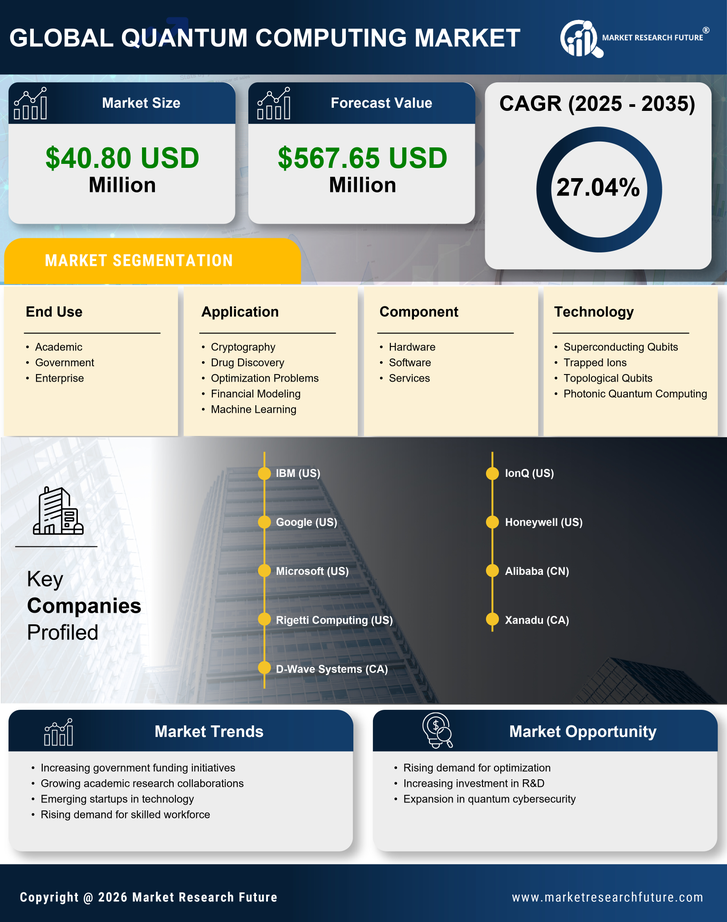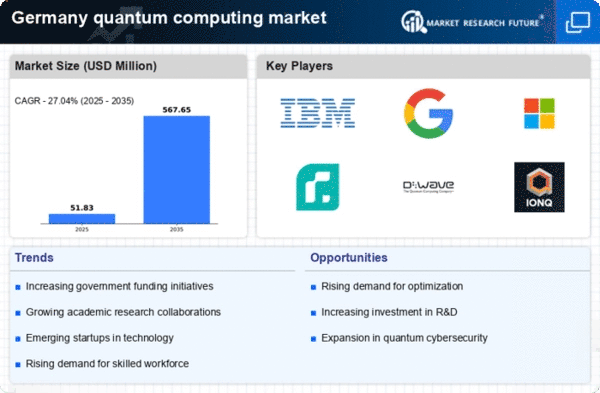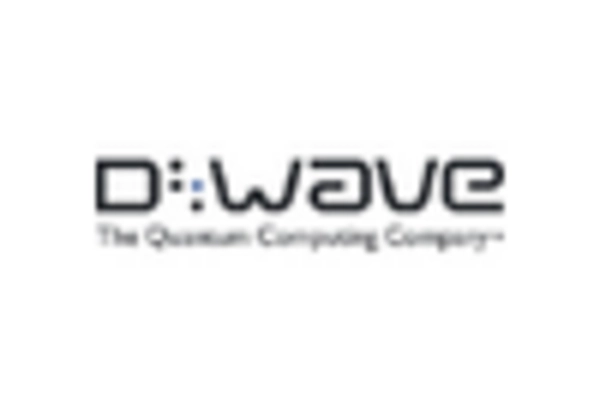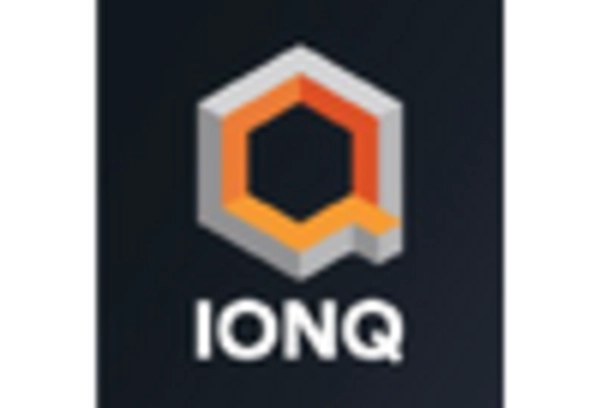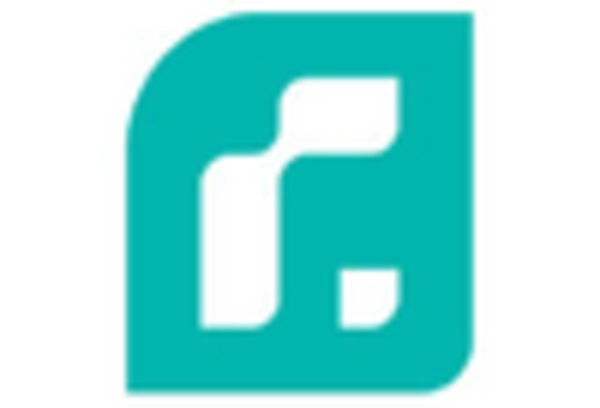Government Initiatives and Funding
The German government actively promotes the quantum computing market through substantial funding and strategic initiatives. In 2025, the government allocated approximately €2 billion to support research and development in quantum technologies. This funding aims to enhance Germany's position as a leader in the quantum computing market, fostering innovation and attracting talent. The initiatives include establishing research centers and partnerships with universities and private enterprises. Such government backing is crucial for driving advancements in quantum computing, as it provides the necessary resources for groundbreaking research and development. Furthermore, these initiatives are expected to stimulate the growth of the quantum computing market by creating a robust ecosystem that encourages collaboration and knowledge sharing among stakeholders.
Growing Interest from Private Sector
The private sector in Germany is increasingly recognizing the potential of quantum computing, leading to a surge in investments and partnerships. Major corporations are exploring quantum technologies to enhance their research capabilities and develop innovative products. In 2025, investments from private companies in the quantum computing market reached approximately €1.5 billion, reflecting a growing commitment to harnessing quantum solutions. This interest is not limited to large enterprises; startups are also emerging, focusing on niche applications within the quantum computing market. The collaboration between private companies and research institutions is fostering a vibrant ecosystem that accelerates the development and commercialization of quantum technologies. This trend suggests a robust future for the quantum computing market as private sector engagement continues to grow.
Rising Demand for Advanced Computing Solutions
The increasing complexity of computational problems across various sectors is driving demand for advanced computing solutions in Germany. Industries such as finance, pharmaceuticals, and logistics are seeking more efficient ways to solve problems that traditional computing cannot address effectively. The quantum computing market is poised to meet this demand, offering solutions that can potentially outperform classical computers in specific tasks. For instance, quantum algorithms can significantly reduce the time required for complex simulations and optimizations. As organizations recognize the potential of quantum computing to enhance operational efficiency and innovation, the market is likely to experience accelerated growth. This trend indicates a shift towards adopting quantum technologies as essential tools for competitive advantage.
Technological Advancements in Quantum Hardware
Recent advancements in quantum hardware are transforming the landscape of the quantum computing market in Germany. Innovations in qubit technology, error correction, and quantum networking are enhancing the performance and scalability of quantum systems. For example, companies are developing superconducting qubits and trapped ion systems that demonstrate improved coherence times and operational fidelity. These technological breakthroughs are crucial for making quantum computing more accessible and practical for various applications. As hardware capabilities improve, the quantum computing market is expected to expand, attracting investments and fostering new applications across industries. The continuous evolution of quantum hardware is likely to play a pivotal role in shaping the future of the quantum computing market.
International Collaboration and Knowledge Exchange
International collaboration is becoming increasingly vital for the advancement of the quantum computing market in Germany. Partnerships with leading research institutions and companies worldwide facilitate knowledge exchange and accelerate innovation. Germany's participation in international quantum initiatives, such as the Quantum Flagship program, underscores its commitment to fostering global cooperation in quantum research. These collaborations enable access to diverse expertise and resources, enhancing the capabilities of the quantum computing market. Furthermore, such partnerships can lead to joint ventures and shared projects that drive technological advancements. As the global landscape of quantum computing evolves, Germany's active involvement in international collaborations is likely to strengthen its position in the quantum computing market.
